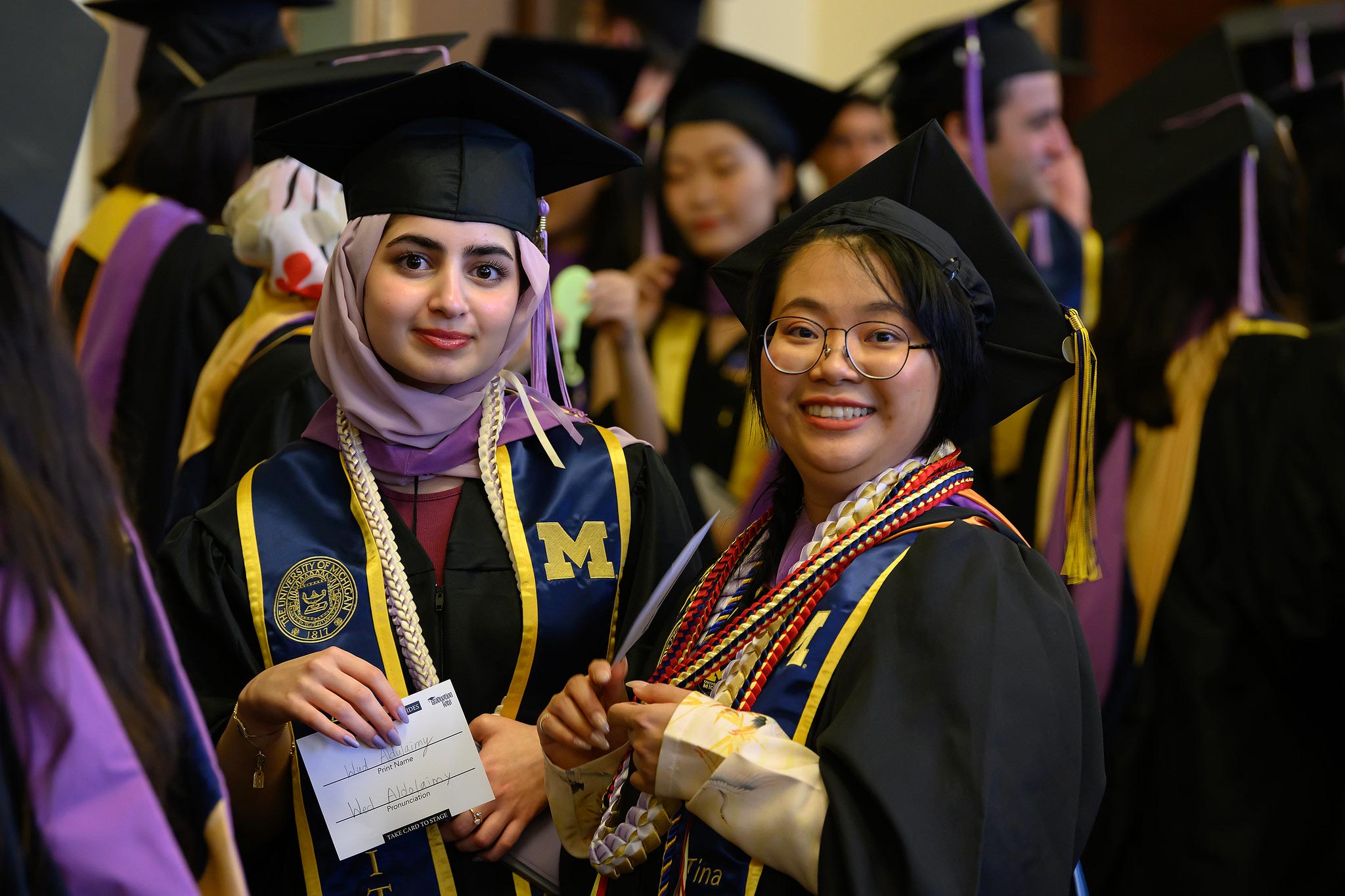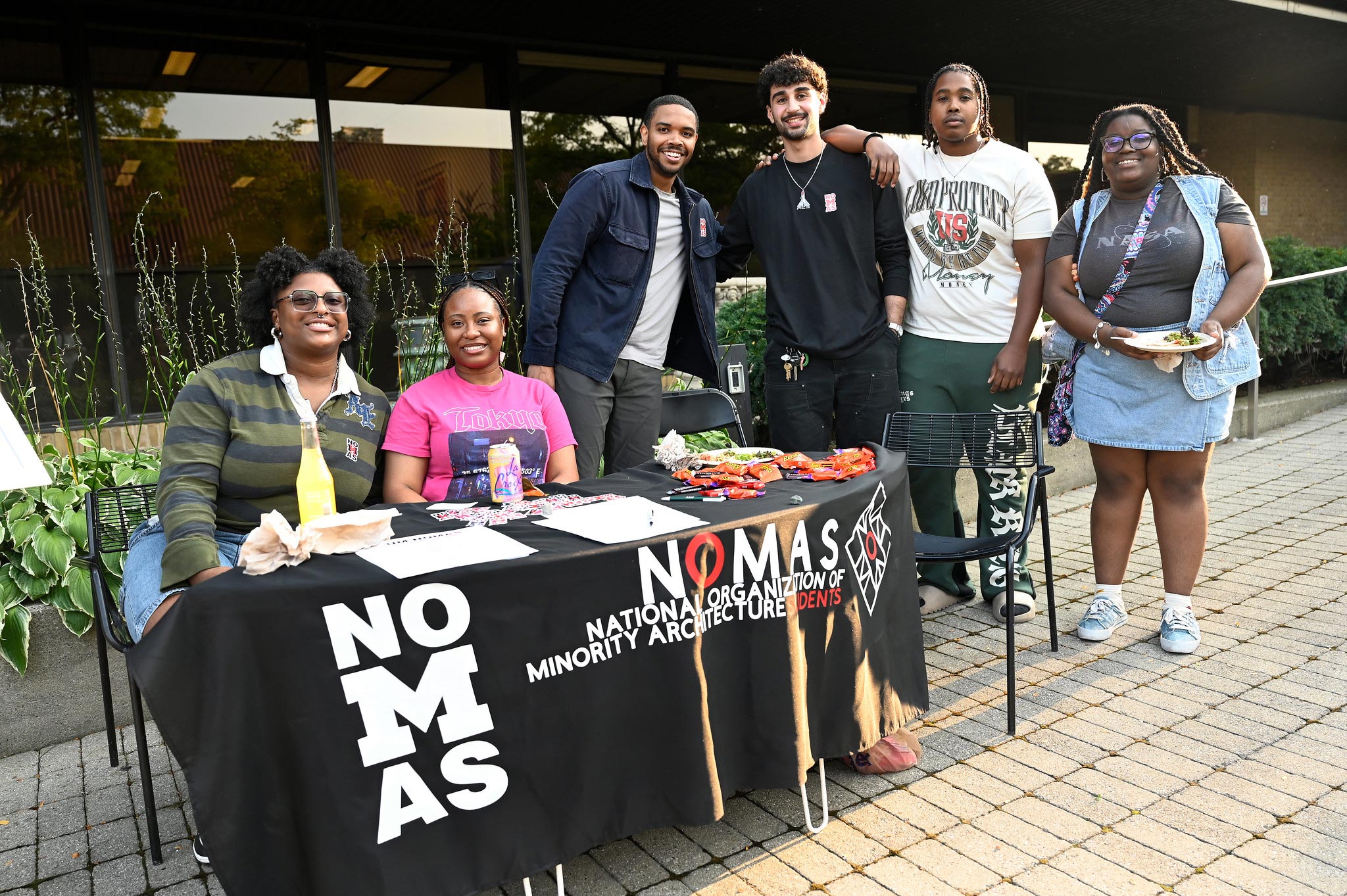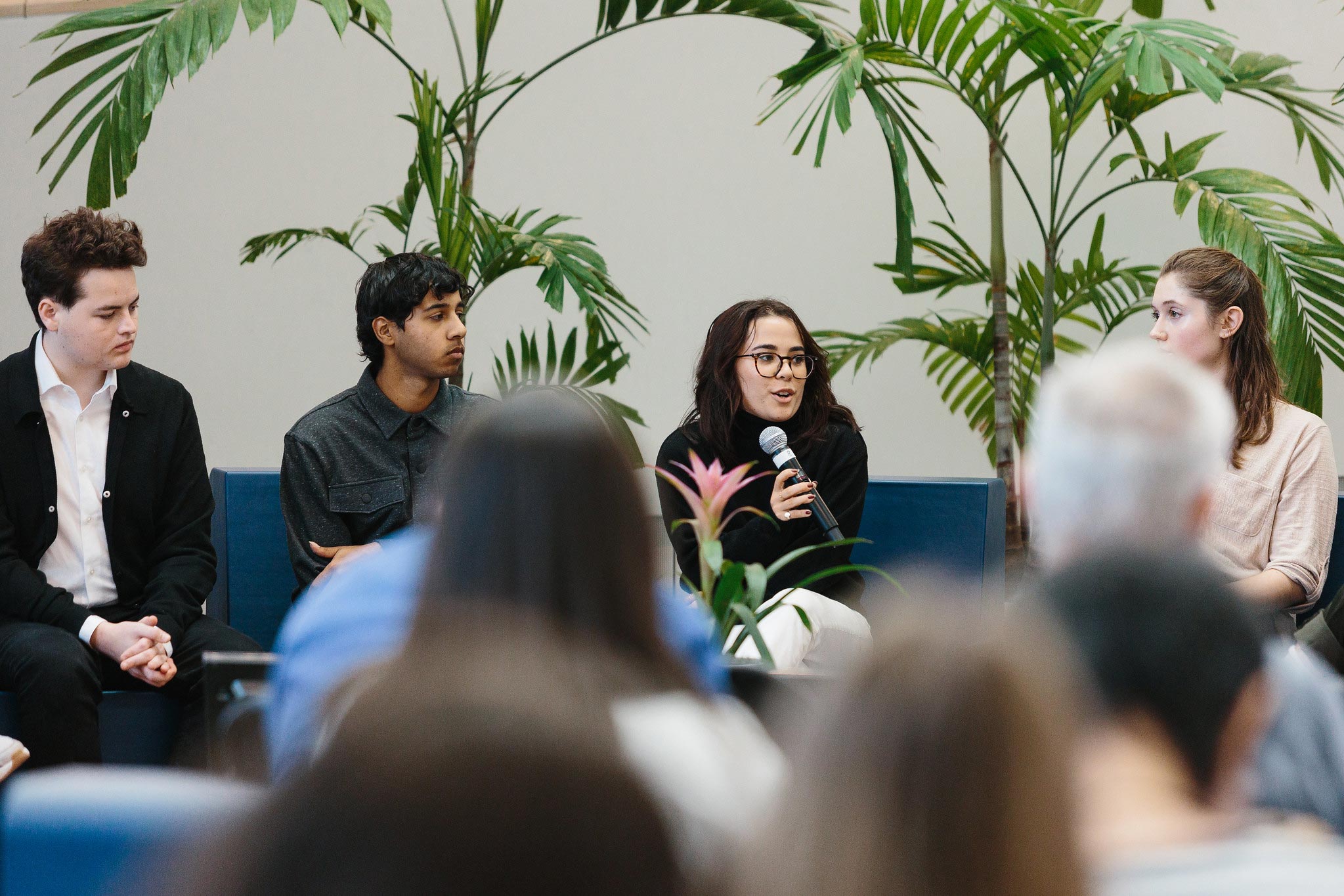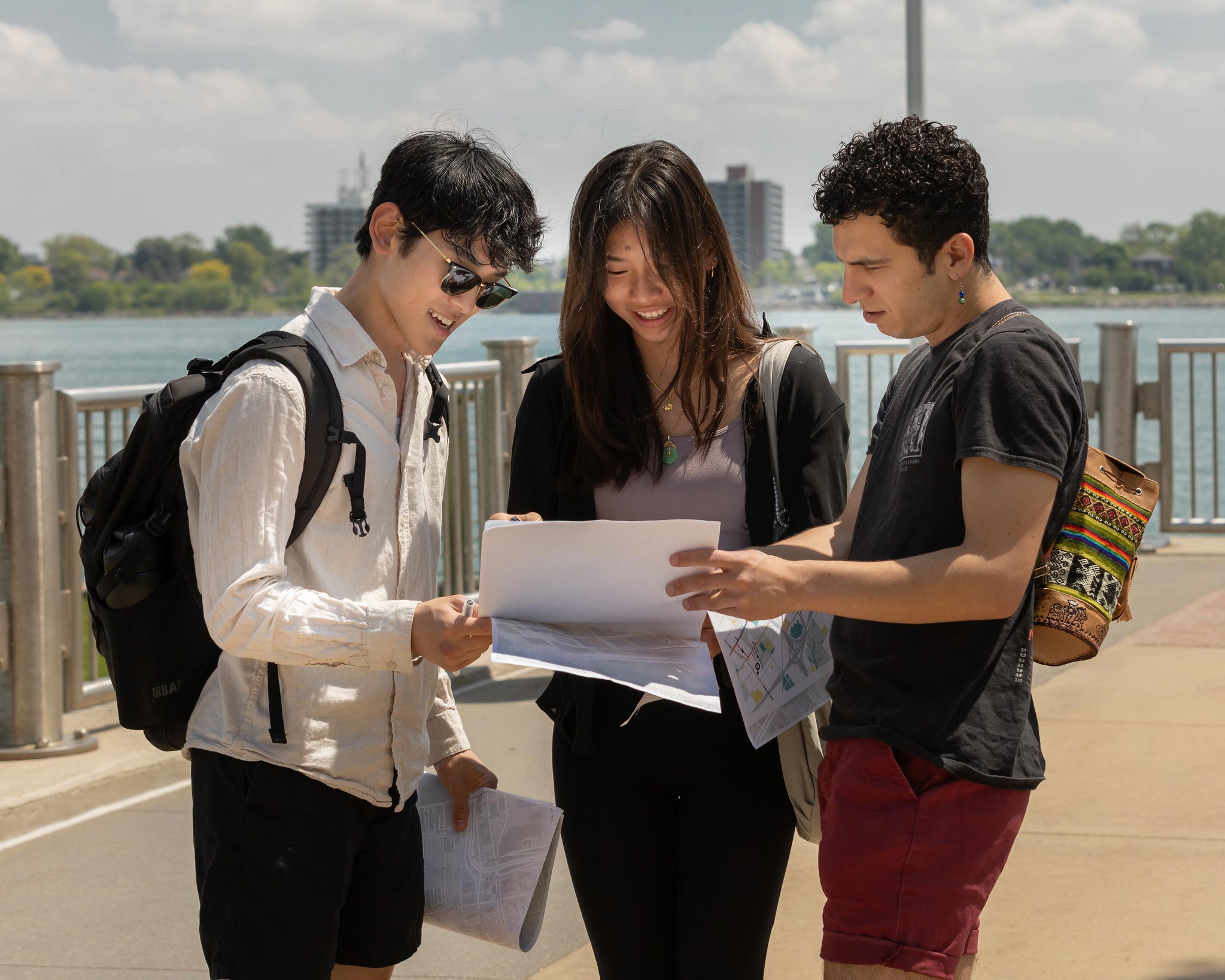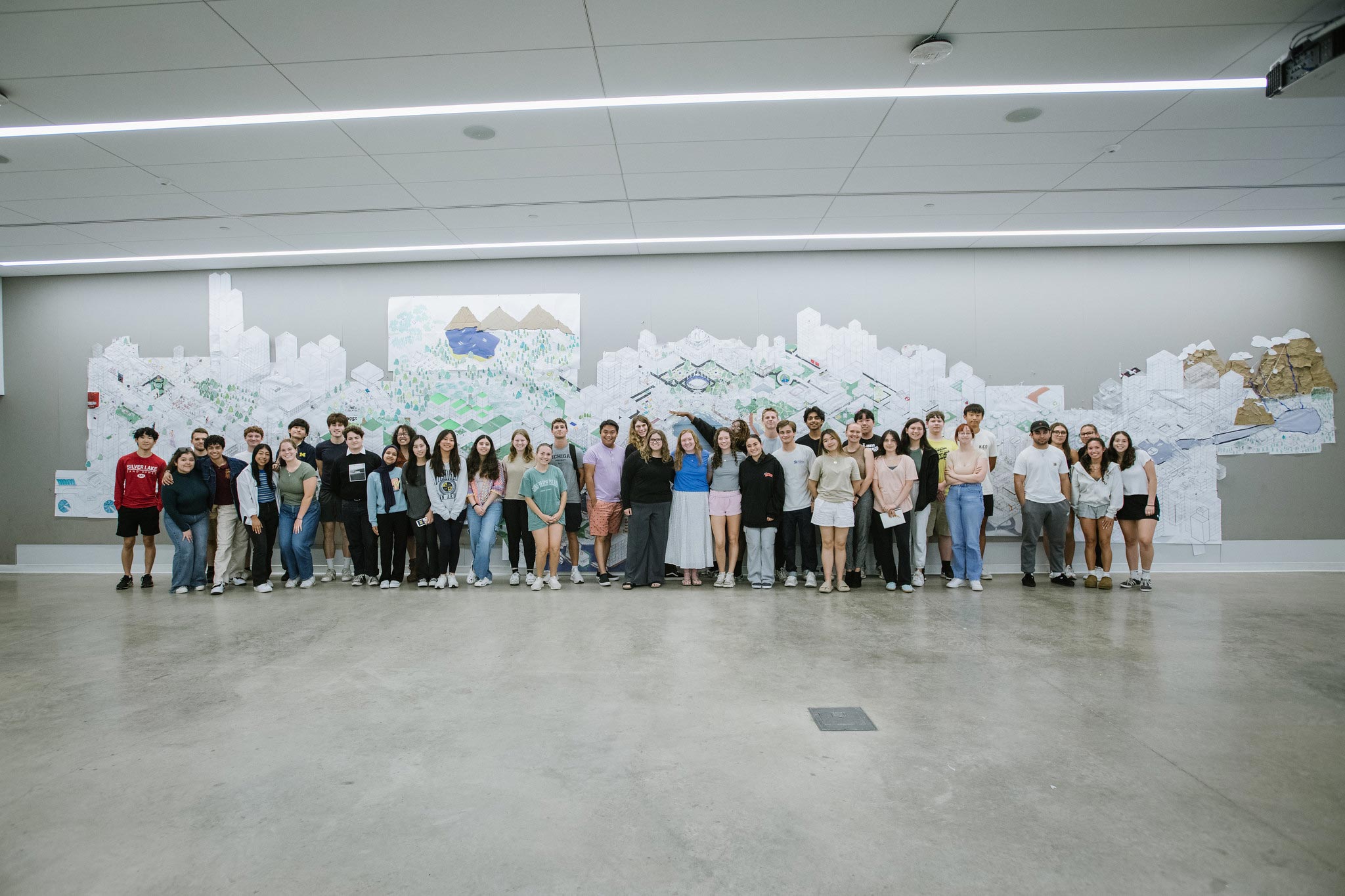Diversity, Equity & Inclusion
You are Welcome in Our Vibrant Community
You and all of the things that make up your unique identity are welcome in our vibrant community of students, faculty, staff, and alumni. We offer a space to explore your ideas, express your opinions, and build meaningful and lasting connections with others.
Diversity, equity, and inclusion (DEI) and social justice are core values at Taubman College. We work hard to create collaborative environments and collective experiences that welcome and encourage diverse participation because we know that the end result will be better for it.
And in doing so, we prepare our students to become leaders in their practice as they work to advance the public good and create more equitable built environment and inclusive communities.
What do we mean by DEI?
Strategic Plan
Our community’s commitment is guided by our annual DEI strategic plan. For a plan to be inclusive, it must be co-created. That’s why our DEI goals are based on community conversations and shared expectations of students, faculty, and staff.
Our DEI 2.0 Strategic Plan focuses on co-developed action items, measures of success, and accountability in the areas of:
Recruitment and Retention: We are a welcoming space for students, faculty, and staff and create equitable and inclusive policies and practices that attract and retain diverse community members.
Teaching and Learning: Teaching at Taubman College is rooted in global literacy, is accessible to all, and motivates just action.
Organizational Culture: Our culture is grounded in transparent and inclusive decision-making, collective reflection, and restorative actions.
Collaborative Community: We thrive on meaningful connections and equitable collaboration that honor diverse perspectives and create a safe community.
DEI 2.0 Strategic Plans
Past Reports
We publish yearly reports on our DEI Strategic Plan progress. DEI efforts are a perpetual work in progress, but we are proud of the strong foundation we have co-created as a community. These reports provide transparency and accountability.
College Compact
We are committed to creating a culture where all of our members can thrive. The College Compact, written with input from students, faculty, and staff, describes the environment we wish to create and the behaviors we hope our community members will exhibit. These shared values articulate our commitments to our interactions and relationships with one another.
Advancing Racial Equity
Anti-racism and DEI are not separate efforts, but rather, anti-racism efforts represent our deepening commitment to dismantle systemic racism in society and to fully realize our DEI goals. Our racial equity framework and other resources complement our DEI plan, accelerate forward motion, and develop new ways of teaching, learning, and working. We aim to learn from current conversations, engage community members to evolve this framework and carry it through to tangible change.
Curricular Review and Reform

We regularly review and monitor curriculum to ensure that course material and structures decenter whiteness, promote inclusive teaching principles, and create a safe learning environment where people feel represented and respected.
Taubman College Pathways









Taubman College Pathways is one way we seek to create avenues to diversify our college community and the fields of architecture and urban planning. Geared toward those exploring graduate education, the program provides an opportunity for career exploration and learning more about Taubman College’s academic offerings in an intimate setting.
Current non-University of Michigan Ann Arbor undergraduate students and college graduates who identify as first-generation or have experienced low socioeconomic status at any time in their life are eligible to apply. DACAmented/Undocumented applicants are also eligible. We are particularly interested in students who want to explore attending Taubman College as graduate students.
ArcPrep









ArcPrep, the University of Michigan’s architecture preparatory program, provides Detroit Public School juniors with an immersive, semester-long college preparatory course in architecture, urbanism, and studio design. Meeting three hours per day, five days a week over the course of a semester, U-M ArcPrep works to broaden career horizons, meet future demand, and bring diverse voices into the fields of architecture, planning, and design by serving students typically underrepresented in American architecture schools and thus the profession of architecture.
ArcStart









ArcStart is our pre-architecture residential program designed to introduce students to the built environment, architectural design principles, and Taubman College of Architecture and Urban Planning. Over the course of the program, high school students will witness how a design education prepares participants to engage the world around them within the context of a rigorous academic setting at a leading design institution.
Eliminating GRE









Taubman College no longer requires a GRE test score as part of its admission requirements as of the 2021 application cycle. The decision stems from data showing that GRE scores are equivalent with undergraduate grade point averages as predictors of success in graduate school, yet also a barrier to entry for students from underrepresented groups and those coming from the workforce.
Wallenberg Studios









The final studio of the B.S. in Architecture degree, the Wallenberg Studio pays tribute to one of our College’s most significant alumni, Raoul Wallenberg. The studio’s main theme revolves around broad humanitarian concerns, which the studio section faculty put forward for exploration annually. Through this course, students delve into the transformative potential of architecture and its impact on people and settlements.
Spring Travel Courses









In past years, Taubman College has provided students with travel opportunities during the spring semester, through courses initiated by faculty and in alignment with individual research interests. Moving forward, the college is taking a new approach. Specifically, 5-6 courses will be preselected through a faculty-student review process to tackle significant social and environmental challenges through a culturally critical and justice-oriented lens. This will ensure that the courses are aligned with the college’s values and priorities while also providing students with a more focused and impactful learning experience.
U-M Public Design Corps









Taubman College launched the U-M Public Design Corps (UM-PDC) to fulfill students’ growing desire to make a positive impact in the built environment. Students work in collaboration with nonprofit organizations and community leaders that typically do not have the access or resources for professional design services. In exchange, students get an exponential opportunity to work with real clients in the professional world.
Inclusive Initiatives
We work together to create safer and braver spaces to share with those who are similar and different from us. We respect, assist, validate, and celebrate each other as we build genuine connections academically and socially for lasting impact. We do this in many ways, including the following:
Phonetic Name Initiative
Something as seemingly straightforward as saying someone’s name out loud, in the way it is intended, shows respect for their culture, background, and experiences.
Personal Pronouns
Knowing and sharing personal pronouns is one of the most basic ways to show respect for another person and help create an inclusive environment where all feel welcome as their authentic selves.
Land Acknowledgement
The University of Michigan is located on the traditional territory of the Anishinaabe people. In 1817, the Ojibwe, Odawa, and Bodewadmi Nations made the largest single land transfer to the University of Michigan. This was offered ceremonially as a gift through the Treaty at the Foot of the Rapids so their children could be educated. Through these words of acknowledgment, their contemporary and ancestral ties to the land and their contributions to the University are renewed and reaffirmed.
Events and Programming
We are a community that celebrates together. Annual student-led gatherings, including Diwali, Lunar New Year, MLK Symposium, Lavender Graduation, and more, spotlight and support our diverse community identities. Our annual North Campus Dean’s Spirit Awards celebrate our community members’ commitment to social justice, diversity, equity, and inclusion. We also intentionally support members of our community who choose to engage in religious observances throughout the year.
Resources
To ensure our community is equipped with knowledge and tools to advance DEI efforts across the college, we develop and socialize related resources such as our racial equity framework, bystander intervention framework, conflict resolution pathways, an anti-racism resource guide, a guide to recognizing white supremacy culture in organizations, accessibility resources, and more. The U-M Office of DEI offers many additional resources to complement those developed by Taubman College.
Connect With Us
We welcome your feedback, input, and ideas. Please contact the DEI Committee or Director of DEI at TaubmanCollegeDEI@umich.edu to learn more about Taubman College’s efforts to advance diversity, equity, and inclusion. We will gladly guide you in the right direction with any DEI-related issues you may have.
DEI Committee
taubmancollegedei@umich.edu
Nyanatee Bailey (he/him/his)
Director of Diversity, Equity, and Inclusion
nebailey@umich.edu







